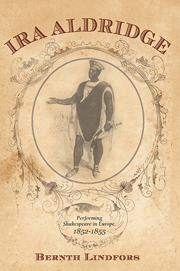Book contents
- Frontmatter
- Contents
- List of Illustrations
- Acknowledgments
- Abbreviations
- Introduction
- 1 Making Up a Company
- 2 Brussels
- 3 Navigating up the Rhine
- 4 Moving into the Interior
- 5 Berlin
- 6 On to Vienna
- 7 Hungarian Rhapsodies
- 8 Comparisons and Contrasts
- 9 Personal and Personnel Matters
- 10 Hungarian Rap Sheet
- 11 Prussia, Germany, Switzerland
- 12 Homeward Bound
- 13 Interpreting Shakespeare
- 14 Further Travels
- Appendixes
- Notes
- Selected Bibliography
- Index
- Miscellaneous Endmatter
10 - Hungarian Rap Sheet
Published online by Cambridge University Press: 05 December 2013
- Frontmatter
- Contents
- List of Illustrations
- Acknowledgments
- Abbreviations
- Introduction
- 1 Making Up a Company
- 2 Brussels
- 3 Navigating up the Rhine
- 4 Moving into the Interior
- 5 Berlin
- 6 On to Vienna
- 7 Hungarian Rhapsodies
- 8 Comparisons and Contrasts
- 9 Personal and Personnel Matters
- 10 Hungarian Rap Sheet
- 11 Prussia, Germany, Switzerland
- 12 Homeward Bound
- 13 Interpreting Shakespeare
- 14 Further Travels
- Appendixes
- Notes
- Selected Bibliography
- Index
- Miscellaneous Endmatter
Summary
In Karlsbad Aldridge, supported by the local German-speaking acting company, opened in Othello on July 27 and followed with Merchant of Venice on July 30. A press report stated that he would also be enacting the role of Muley Hassan, a treacherous Moor assassin, in Friedrich Schiller's popular German historical melodrama Fiesko, an English translation of which he had appeared in Dublin twenty years earlier. One of the Karlsbad actors, who also served the company as stage manager, was Karl Rémay, afterward described in the press as “the darling of the entire local public [who] especially distinguished himself as: Iago, Graziano [sic], Macduff and Fiesko—one recognized the intelligent artist at first glance.” However, he did not outshine Aldridge, who was said to be “perfect” in all his characters: “he did not draw a single breath which was not consecrated by heroic beauty, adorned with the most sublime triumphs of perfect art. Aldridge is just as great in comedy as he is in tragedy; in every respect his achievements are of the highest rank. A single one of his gestures is enough to elicit tears or unceasing laughter.”
When Aldridge moved on to perform in Teplitz (now Teplice), Rémay came along with him, both as a guest performer and as stage manager. After leaving Hamburg for Pest, Aldridge had been accompanied by Gyula Dallos, an English-language teacher who served as his translator, but Rémay, who apparently could speak English as well as German and Hungarian, eventually took over this role and also became Aldridge’s secretary and stage manager, replacing both Carl Herrmann and Charles Stanton. As they traveled together, Rémay had less acting and stage managing to do because most of the theaters they visited had their own personnel for these jobs, so he was most helpful as an interpreter and communicator with Hungarian theater managers. For several months Aldridge and Rémay were inseparable.
- Type
- Chapter
- Information
- Ira AldridgePerforming Shakespeare in Europe, 1852-1855, pp. 155 - 174Publisher: Boydell & BrewerPrint publication year: 2013

